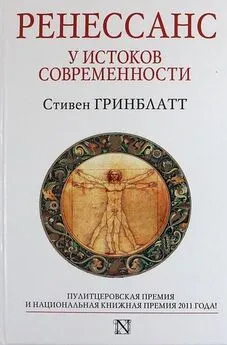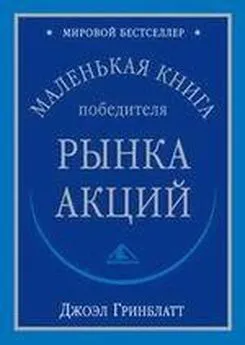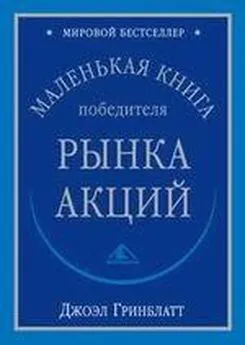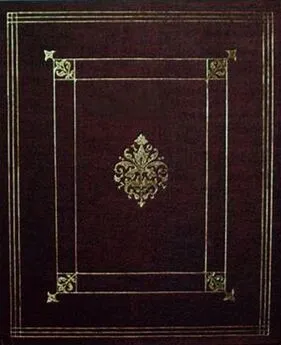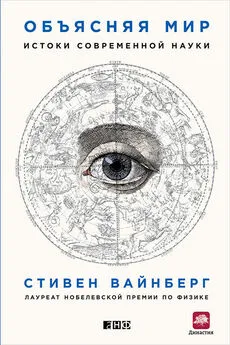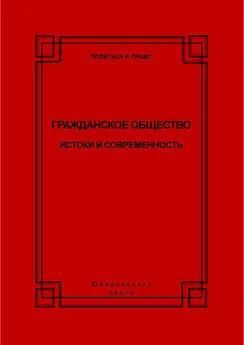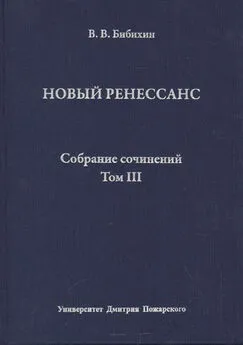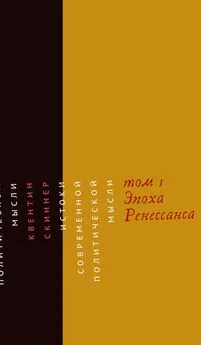Стивен Гринблатт - Ренессанс. У истоков современности
- Название:Ренессанс. У истоков современности
- Автор:
- Жанр:
- Издательство:АСТ
- Год:2014
- Город:Москва
- ISBN:978-5-17-080654-6
- Рейтинг:
- Избранное:Добавить в избранное
-
Отзывы:
-
Ваша оценка:
Стивен Гринблатт - Ренессанс. У истоков современности краткое содержание
Не было бы ни шедевров Леонардо да Винчи и Микеланджело, ни блистательного политического цинизма Макиавелли, ни всей эпохи расцвета наук и искусств, времени создания гениальных произведений живописи, литературы и философии.
Не было бы, если бы однажды собиратель старинных рукописей Поджо Браччолини не натолкнулся в монастырской библиотеке на некий старинный манускрипт…
Так была обнаружена считавшаяся доселе утраченной поэма Лукреция «О природе вещей», пролежавшая в забвении сотни лет.
Рукопись проповедовала крайне «опасные» идеи гуманизма и материализма, учила радоваться жизни, отрицала религиозное ханжество и мракобесие. Она повлияла на формирование мировоззрения Галилея и Фрейда, Томаса Джефферсона, Дарвина и Эйнштейна.
Возрождение поэмы из небытия изменило ход европейской истории.
Ренессанс. У истоков современности - читать онлайн бесплатно полную версию (весь текст целиком)
Интервал:
Закладка:
Turberville, S. Medieval Heresy and the Inquisition. London and Hamden, CT: Archon Books, 1964.
Turner, Frank M. “Lucretius Among the Victorians”, Victorian Studies 16 (1973), pp. 329-48.
Turner, Paul. “Shelley and Lucretius”, Review of English Studies 10 (1959), pp. 269-82.
Tyndall, John. “The Belfast Address”, Fragments of Science: A Series of Detached Essays, Addresses and Reviews. New York: D. Appleton & Co., 1880, pp. 472-523.
Ullman, B.L. Studies in the Italian Renaissance. Rome: Edizioni di Storia e Letteratura, 1955.
Vail, Amy, ed. “Albert Einstein's Introduction to Diels' Translation of Lucretius”, The Classical World 82 (1989), pp. 435-36.
Valla, Lorenzo. De vero falsoque bono, trans, and ed., Maristella de Panizza Lorch. Bari: Adriatica, 1970.
.— On Pleasure, trans. A. Kent Hieatt and Maristella Lorch. New York: Abaris Books, 1977, pp. 48-325.
Vasari, Giorgio. Lives of the Most Eminent Painters, Sculptors, and Architects. London: Philip Lee Warner, 1912.
.— The Lives of the Artists, trans. Julia Conaway Bondanella and Peter Bondanella. Oxford: Oxford University Press, 1988.
Vespasiano. The Vespasiano Memoirs: Lives of Illustrious Men of the XVth Century, trans. William George and Emily Waters. New York: Harper & Row, 1963.
Virgil. Virgil's Georgies, trans. John Dryden. London: Euphorion Books, 1949.
Wade, Nicholas. “Humans Have Spread Globally, and Evolved Locally”, The New York Times, June 26, 2007, p. D3.
Wakefield, Walter L. “Some Unorthodox Popular Ideas of the Thirteenth Century”, Medievalia et Humanistica 4 (1973), pp. 25-35.
Walser, Ernst. Poggius Florentinus: Leben und Werke. Hildesheim: Georg Olms, 1974.
Warburg, Aby. Sandro Botticellis Gehurt der Venus und Fruhling: Eine Untersuchung über die Vorstellungen von der Antike in der Italienischen Frührenaissance. Hamburg & Leipzig: Verlag von Leopold Voss, 1893.
.— The Renewal of Pagan Antiquity: Contributions to the Cultural History of the European Renaissance, trans. David Britt. Los Angeles: Getty Research Institute for the History of Art and the Humanities, 1999, pp. 88-156.
Ward, Henshaw. Charles Darwin: The Man and His Warfare. Indianapolis: Bobbs-Merrill, 1927.
Webb, Clement. Kant's Philosophy of Religion. Oxford: Clarendon Press, 1926.
Weiss, Harry В., and Ralph H. Carruthers. Insect Enemies of Books. New York: New York Public Library, 1937.
Weiss, Roberto. Medieval and Humanist Greek. Padua: Antenore, 1977.
Wenley, R.M. Kant and His Philosophical Revolution. Edinburgh: T. & T. Clark, 1910.
.— The Spread of Italian Humanism. London: Hutchinson University Library, 1964.
.— The Renaissance Discovery of Classical Antiquity. Oxford: Blackwell, 1969.
West, David. The Imagery and Poetry of Lucretius. Norman: University of Oklahoma Press, 1969.
Westfall, Richard. “The Foundations of Newton’s Philosophy of Nature”, British Journal for the History of Science, 1 (1962), pp. 171-82.
White, Michael. Leonardo, the First Scientist. New York: St. Martin's Press, 2000.
Whyte, Lancelot. Essay on Atomism: From Democritus to 1960. Middletown, CT: Wesleyan University Press, 1961.
Wilde, Lawrence. Ethical Marxism and Its Radical Critics. Houndmills, Basingstoke, UK: Macmillan Press, 1998.
Wilford, John Noble. “The Human Family Tree Has Become a Bush with Many Branches”, The New York Times, June 26, 2007, pp. D3, D10.
Wind, Edgar. Pagan Mysteries in the Renaissance. Harmondsworth, UK: Penguin Books, 1967.
Witt, Ronald G. “The Humanist Movement”, in Thomas A. Brady, Jr., Heiko A. Oberman, and James D. Tracy, eds., Handbook of European History 1400—1600: Late Middle Ages, Renaissance and Reformation. Leiden and New York: E.J. Brill, 1995, pp. 93-125.
.— “In the Footsteps of the Ancients”: The Origins of Humanism from Lovato to Bruni, Studies in Medieval and Reformation Thought, ed. Heiko A. Oberman, vol. 74. Leiden: E.J. Brill, 2000.
Woolf, Greg, and Alan K. Bowman, eds. Literacy and Power in the Ancient World. Cambridge: Cambridge University Press, 1994.
Yarbrough, Jean. American Virtues: Thomas Jefferson on the Character of a Free People. Lawrence: University Press of Kansas, 1998.
Yashiro, Yukio. Sandro Botticelli and the Florentine Renaissance. Boston: Hale, Cushman, & Flint, 1929.
Yates, Frances A. Giordano Bruno and the Hermetic Tradition. Chicago: University of Chicago Press, 1964.
Yatromanolakis, Dimitrios, and Panagiotis Roilos. Towards a Ritual Poetics. Athens: Foundation of the Hellenic World, 2003.
Yoon, Carol Kaesuk. “From a Few Genes, Life's Myriad Shapes”, The New York Times, June 26, 2007, pp. D1, D4-D5.
Zimmer, Carl. “Fast-Reproducing Microbes Provide a Window on Natural Selection”, The New York Times, June 26, 2007, pp. D6-D7.
Zorzi, Andrea, and William J. Connell, eds. Lo Stato Territoriale Fiorentino (Secoli XIV—XV): Richerche, Linguaggi, Confronti. San Miniato: Pacini, 1996.
Zwijnenberg, Robert. The Writings and Drawings of Leonardo da Vinci: Order and Chaos in Early Modern Thought, trans. Caroline A. van Eck. New York: Cambridge University Press, 1999.
Примечания
1
Lucretius, On the Nature of Things, trans. Martin Ferguson Smith (London: Sphere Books, 1969; rev. edn., Indianopolis: Hackett, 2001), 1:12-20. Я обращался к различным переводам поэмы: Х.А. Дж. Мунро (1914), У.Г.Д. Рауса и Мартина Фергюсона Смита (1975, 1992), Фрэнка О. Копли (1977), Рональда Мелвилла (1997), А.Е. Столлингза (2007) и Дэвида Славитта (2008). Из более ранних переводов я прочел тексты Джона Ивлина (1620—1706), Люси Хатчинсон (1620—1681), Джона Драйдена (1631—1700) и Томаса Крича (1659—1700). На мой взгляд, наилучший перевод сделал Драйден, хотя он перевел лишь небольшую часть поэмы (615 строк, менее десяти процентов) и в его передаче современному читателю нередко трудно понять Лукреция. Я предпочел воспользоваться прозаическим переводом Смита (если нет иных ссылок) и цитировал строки из латинского текста по изданию Лёбовской классической серии — Cambridge, MA: Harvard University Press, 1975.
2
On the Nature of Things, 5:737-740. Крылатый вестник Венеры — Купидон, его Боттичелли изобразил слепым и мечущим стрелы. Флора, римская богиня цветов, разбрасывает лепестки со своего роскошного платья. Зефир, бог благодатного западного ветра, тянется к нимфе Хлорис. О влиянии Лукреция на творчество Боттичелли, внушенном гуманистом Полициано, см.: Charles Dempsey, The Portrayal of Love: Botticelli's «Primavera» and Humanist Culture at the Time of Lorenzo the Magnificent (Princeton: Princeton University Press, 1992), pp. 36-49; Horst Bredekamp, Botticelli: Primavera, Florenz als Garten der Venus (Frankfurt am Main: Fischer Verlag GmbH, 1988); и эссе Аби Варбурга 1893 года: Aby Warburg, «Sandro Botticelli» Birth of Venus and Spring: An Examination of Concepts of Antiquity in the Italian Early Reneissance», in The Revival of Pagan Antiquity, ed. Kurt W. Forster, trans. David Britt (Los Angeles: Getty Research Institute for the History of Art and the Humanities, 1999), pp. 88-156.
3
Сохранилось 558 писем Поджо, адресованных 172 различным персонажам. Франческо Барбаро, поздравляя Поджо в июле 1417 года с великолепной находкой, упоминает письмо об экспедиции, посланное Поджо «нашему прекрасному и просвещенному другу Гуарино Веронскому» — Two Renaissance Book Hunters: The Letters of Poggius Bacciolini to Nicolaus de Nicolis, trans. Phullis Walter Goodhart Gordan (New York: Columbia University Press, 1974), p. 201. Письма Поджо см.: Poggio Bracciolini, Lettere, ed. Helene Harth, 3 vols. (Florence: Olschki, 1984).
4
О внешнем облике Поджо: Poggio Bracciolini (1380—1980): Nel VI centenario della nascita, Instituto Nazionale di Studi Sul Rinascimento, vol. 7 (Florence: Sansoni, 1982); Un Toscano del'400 Poggio Bracciolini, 1380—1459, ed. Patrizia Castelli (Terranuova Bracciolini: Administrazione Communale, 1980). Главный биографический источник — Ernst Walser, Poggius Florentinus: Leben und Werke (Hildescheim: George Olms, 1974).
5
О согрешении любопытством и трудностях реабилитации см. у Ханса Блюменберга: The Legitimacy of the Modern Age, trans. Robert M. Wallace (Cambridge, MA: MIT Press, 1983; orig. German edn. 1966), pp. 229-453.
6
Eustace J. Kitts, In the Days of the Councils: A Sketch of the Life and Times of Baldassare Cossa (Afterward Pope John the Twenty Third) (London: Archibald Constable & Co., 1908), p. 359.
7
Peter Partner, The Pope' Men: The Papal Civil Service in the Renaissance (Oxford: Clarendon Press, 1990), p. 54.
8
Lauro Martines, The Social World of the Florentine Humanists, 1390—1460 (Princeton University Press, 1963), pp. 123-127.
9
В 1416 году Поджо, очевидно, пытался при содействии коллег и курии добиться бенефиция, но это вызвало кривотолки, и субсидия не была предоставлена. Он также мог получить должность писца при новом папе Мартине V, однако Поджо отказался, посчитав ее недостойной для бывшего апостолического секретаря — Walser, Poggius Florentinus, pp. 42ff.
10
Nicholas Mann, «The Origins of Humanism», The Cambridge Companion to Renaissance Humanism, ed. Jill Kraye (Cambridge: Cambridge University Press, 1996), p. 11. О реакции Поджо на открытия Петрарки: Riccardo Fubini, Humanism and Secularization: From Petrarch to Valla, Duke Monographs in Medieval and Renaissance Studies, 18 (Durham, NC, and London: Duke University Press, 2003). Об итальянских гуманистах: John Addington Symonds, The Revival of Learning (New York: H. Holt, 1908; repr. 1960); Wallace K. Ferguson, The Renaissance in Historical Thought: Five Centuries of Interpretation (Cambridge, MA: Harvard University Press, 1948); Paul Oskar Kristeller, «The Impact of Early Italian Humanism on Thought and Learning» — Bernard S. Levy, ed., Developments in the Early Renaissance (Albany: State University of New York Press, 1972), pp. 120-157; Charles Trinkaus, The Scope of Renaissance Humanism (Ann Arbor: University of Michigan Press, 1983); Anthony Grafton and Lisa Jardine, From Humanism to the Humanities: Education and the Liberal Arts in the Fifteenth- and Sixteenth- Century Europe (Cambridge, MA: Harvard University Press, 1986); Peter Burke, «The Spread of Italian Humanism» — Anthony Goodman and Angus Mackay, eds., The Impact of Humanism on Western Europe (London: Longman, 1990), pp. 1-22; Ronald G. Witt, «In the Footsteps of the Ancients»: The Origins of Humanism from Lovato to Bruni, Studies in Medieval and Reformation Thought, ed. Heiko A. Oberman, vol. 74 (Leiden: Brill, 2000); and Riccardo, Fubini, L'Umanestimo Italiano e I Suoi Storici (Milan: Franco Angeli Storia, 2001).
Читать дальшеИнтервал:
Закладка:
